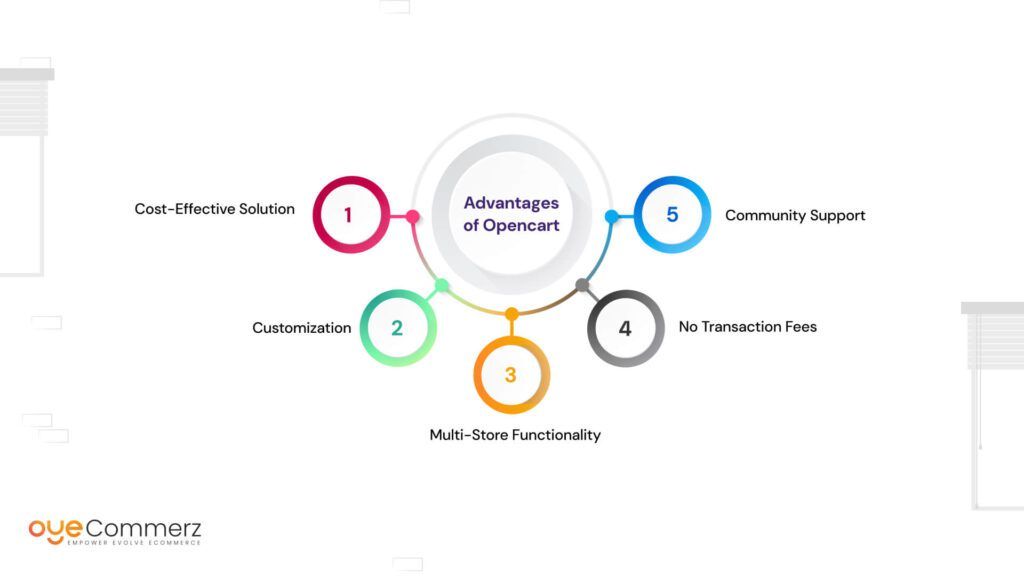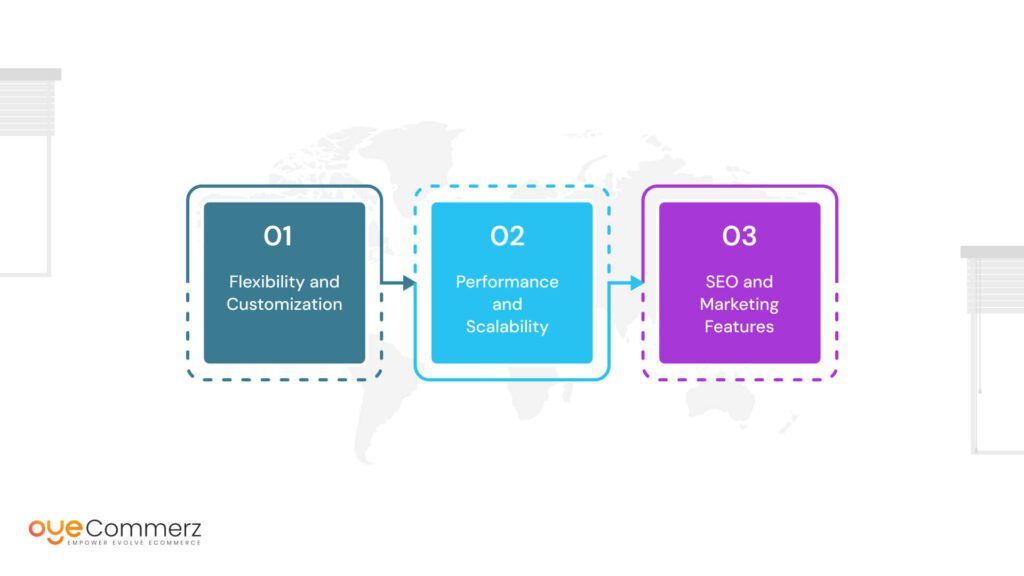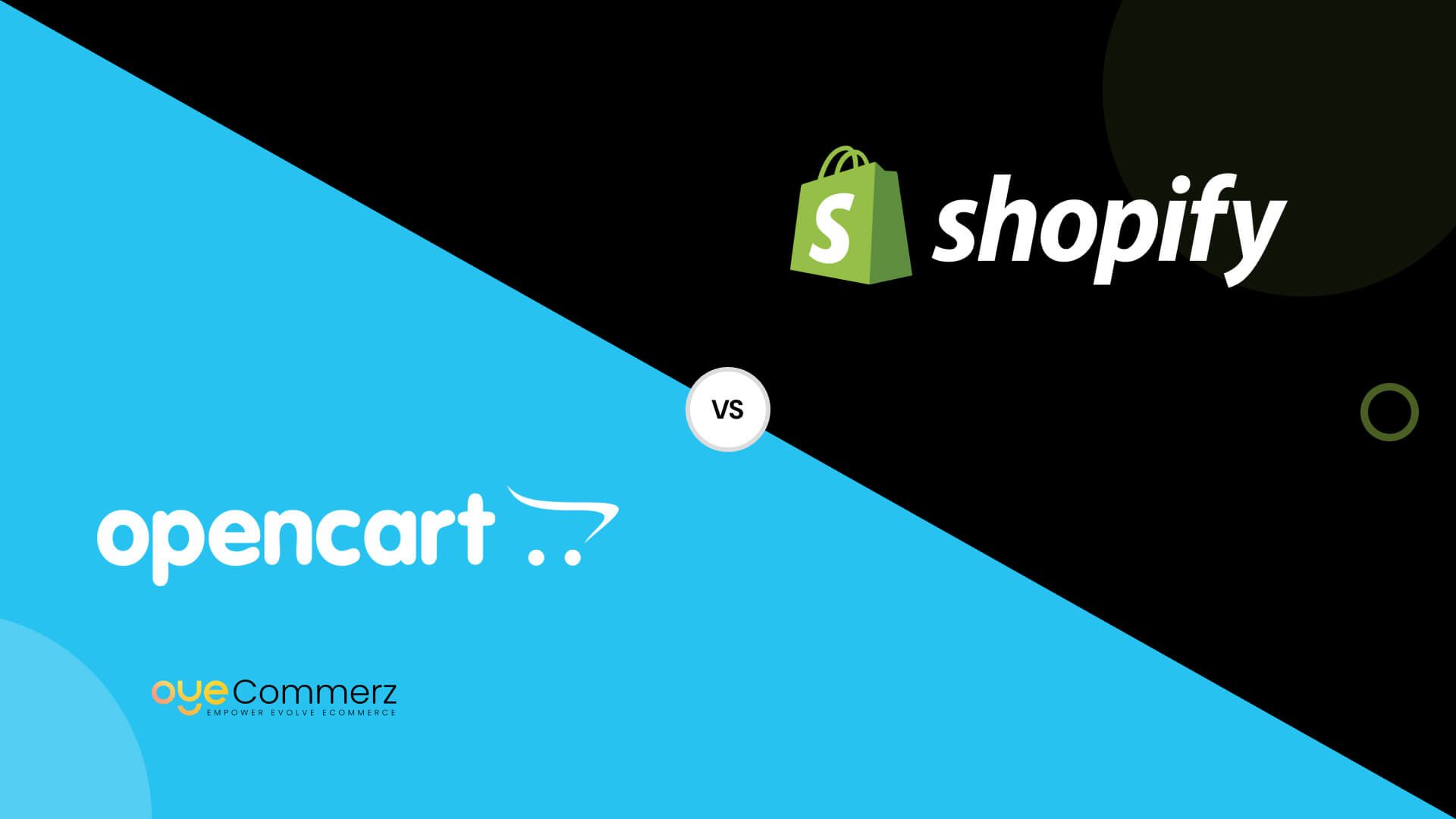Choosing the right eCommerce platform is one of the most important decisions for your business, but with so many options out there, it can feel overwhelming. OpenCart and Shopify are two of the most popular platforms, but how do you know which one will work best for you? Whether you’re a small business owner just starting out or an established brand looking to scale, this comparison will help you make an informed choice. By the end of this read, you’ll have a clearer idea of which platform can power your store to success.
By comparing the features, flexibility, and ease of use of OpenCart and Shopify, you’ll know exactly which platform suits your business needs.
Table of Contents
ToggleOpenCart vs Shopify: Platform Overview

OpenCart: Flexibility with Complexity
OpenCart is a free, open-source platform designed for businesses that seek customization and flexibility. It is particularly popular among developers and technically savvy users who want full control over the look and functionality of their online stores.
Advantages of OpenCart
- Cost-Effective Solution: OpenCart is free to download and use. Businesses can take full control of their server hosting, avoiding monthly subscription fees.
- Customization: Because OpenCart is open-source, users have unlimited customization options. Developers can tailor the platform to specific business needs, enabling unique functionalities and integrations.
- Multi-Store Functionality: OpenCart allows businesses to manage multiple stores from a single interface. This is particularly advantageous for enterprises looking to expand their market reach or diversify their product lines.
- No Transaction Fees: Unlike many SaaS eCommerce platforms, OpenCart does not charge transaction fees. Enterprises can benefit from this when dealing with high volumes of sales.
- Community Support: OpenCart has a large, active community of developers and contributors who frequently release new modules, extensions, and customizations.
Challenges of OpenCart
- Technical Knowledge Required: OpenCart’s open-source nature means that it requires significant technical expertise to set up, configure, and maintain. This can lead to additional costs, particularly for businesses that need to hire in-house developers or work with external agencies for support.
- Security: Since OpenCart is self-hosted, enterprises are responsible for their own security updates and patches. This adds an extra layer of responsibility, as businesses must remain vigilant against potential security vulnerabilities.
- Lack of Built-in Features: While OpenCart is highly customizable, many features that come standard in platforms like Shopify require third-party extensions in OpenCart. This can increase complexity and lead to compatibility issues during updates.
- Scalability Issues: OpenCart may not be ideal for fast-growing enterprises. As the platform scales, businesses can encounter performance bottlenecks, especially if the site’s code or hosting infrastructure is not optimized.
Shopify: Scalability and Simplicity for Rapid Growth
Shopify, on the other hand, is a fully hosted, SaaS (Software-as-a-Service) platform known for its ease of use, reliability, and scalability. Over the years, Shopify has become a leader in the eCommerce industry, powering over 1.75 million businesses worldwide . The platform is particularly attractive to enterprises because it requires minimal technical maintenance, making it ideal for fast-growing businesses that need to focus on operations rather than platform management.
Advantages of Shopify
- Ease of Use: Shopify is renowned for its user-friendly interface, making it accessible for non-technical users. Its drag-and-drop functionality enables businesses to quickly set up an online store without needing to write a single line of code.
- Extensive Feature Set: Shopify comes with an array of built-in features, including secure payment gateways, SEO tools, mobile optimization, and omnichannel capabilities, allowing enterprises to unify their online and offline operations.
- Scalability: Shopify’s hosted infrastructure can handle high traffic and sales volumes, making it ideal for fast-growing businesses. With Shopify Plus, its enterprise-level solution, the platform offers advanced tools for automation, analytics, and CRM integration, ensuring a seamless growth path for larger businesses.
- Security: Shopify takes care of security updates, patches, and compliance with industry standards such as PCI-DSS for secure transactions. This ensures that enterprises can focus on growth without worrying about potential security threats.
- Third-Party Integrations: Shopify boasts a marketplace with over 8,000 apps and integrations, ranging from inventory management and marketing automation to accounting and customer service tools .
- Dedicated Support: Shopify offers 24/7 customer support and a dedicated account manager for Shopify Plus users, ensuring that any technical or operational challenges are addressed promptly.
Challenges of Shopify
- Recurring Costs: Shopify operates on a subscription model, with monthly fees depending on the plan selected. While Shopify’s Basic plan starts at $39 per month, enterprise-level businesses using Shopify Plus will see costs ranging from $2,000 to $40,000 annually.
- Transaction Fees: Shopify charges a transaction fee if you choose to use third-party payment gateways, although this can be avoided by using Shopify Payments.
- Limited Customization: Although Shopify allows for theme customization and app integration, it’s not as flexible as OpenCart. Enterprises seeking deeply customized features or integrations may face limitations, especially when compared to open-source platforms like OpenCart.
OpenCart vs Shopify: Feature Comparison for eCommerce Growth

Flexibility and Customization
OpenCart’s open-source nature provides the ultimate flexibility for businesses looking to tailor every aspect of their store. Its modular design allows developers to add or remove functionalities as needed, creating a highly personalized shopping experience. However, this customization comes with a steep learning curve and requires significant technical resources.
Shopify, while not as customizable as OpenCart, offers ample flexibility through its theme editor and vast app marketplace. Shopify Plus, in particular, provides businesses with APIs and dedicated tools that enable further customization. However, enterprises looking for a highly specialized solution may find that Shopify’s SaaS model imposes certain limitations. In essence, OpenCart offers greater flexibility for customization, while Shopify excels at providing pre-built solutions that can be rapidly deployed.
Performance and Scalability
Performance and scalability are critical factors for enterprise-level businesses, especially those experiencing rapid growth. Shopify’s hosted platform is designed to scale seamlessly with businesses. Its cloud infrastructure can handle spikes in traffic during high-demand periods, such as Black Friday or Cyber Monday, without compromising performance. Shopify’s 99.98% uptime ensures that enterprises never lose out on sales due to platform downtime .
On the other hand, OpenCart’s performance heavily depends on the quality of the hosting provider and the level of optimization within the platform. While OpenCart can be highly scalable, businesses will need to invest in proper hosting infrastructure and development resources to achieve the same level of performance that Shopify provides out-of-the-box.
SEO and Marketing Features
Both OpenCart and Shopify offer robust SEO tools, but Shopify holds an edge due to its built-in features and user-friendly interface. Shopify includes automated SEO-friendly practices like generating sitemap.xml files, clean URL structures, and optimizing mobile experiences. According to Shopify, 79% of smartphone users have made a purchase online using their mobile device in the last six months, emphasizing the importance of mobile-optimized stores .
OpenCart does support SEO features, but users need to manually install extensions or hire a developer to optimize their site for search engines. Shopify’s superior ease of use and built-in marketing tools, such as social media integration and email marketing, make it a stronger contender for businesses seeking to drive organic traffic.
Thinking About Switching to Shopify? Let OyeCommerz Help!
At OyeCommerz, we specialize in seamless Shopify migrations for businesses of all sizes. Whether you’re moving from OpenCart or starting fresh, our expert team will handle everything—from data migration to custom store setup—so you can focus on growing your business.
With years of experience in Shopify development, we’ll ensure your eCommerce platform is optimized for growth, scalability, and customer satisfaction. Ready to make the switch? Contact OyeCommerz today and let us help you build a Shopify store that drives success!
Contact to Migrate your Site to Shopify Now
Conclusion
Ultimately, the decision between OpenCart and Shopify depends on the specific needs and goals of your business. For enterprises seeking maximum flexibility and who have the resources to manage a technically demanding platform, OpenCart may be the better choice. It offers unparalleled customization options and control over your store’s functionality, but at the cost of increased complexity and the need for ongoing development support.
For fast-growing businesses looking for a scalable, easy-to-use platform with robust support and built-in features, Shopify is the superior choice. Its user-friendly interface, powerful app ecosystem, and strong focus on scalability make it ideal for enterprises that need to focus on growth rather than technical maintenance. Shopify’s strong security and performance guarantees further solidify its position as a leading choice for eCommerce businesses aiming to dominate their market.
Whichever platform you choose, ensure that it aligns with your long-term business goals, and always consider scalability, performance, and ease of use when making your decision.



